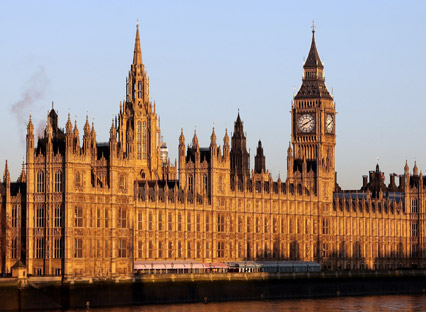Ministers join no-deal rebellion - could the Queen be next?
After MPs vote to block parliament's suspension Tory rebels consider whether they could ask the Queen to help

A free daily email with the biggest news stories of the day – and the best features from TheWeek.com
You are now subscribed
Your newsletter sign-up was successful
Tory rebels have voted to block any attempt to suspend parliament in order to force through a no-deal Brexit.
The amendment was passed by a hefty 41-vote majority, after what The Guardian describes as “a day of drama in Westminster” which saw “the resignation of one minister and abstentions from four rebellious cabinet ministers”.
Among ministers who defied the whip and did not vote were the chancellor, Philip Hammond; the justice secretary, David Gauke; the business secretary, Greg Clark; and Rory Stewart, the international development secretary.
The Week
Escape your echo chamber. Get the facts behind the news, plus analysis from multiple perspectives.

Sign up for The Week's Free Newsletters
From our morning news briefing to a weekly Good News Newsletter, get the best of The Week delivered directly to your inbox.
From our morning news briefing to a weekly Good News Newsletter, get the best of The Week delivered directly to your inbox.
Margot James, the digital industries minister, quit her job to vote in favour of the amendment from Hilary Benn and Alistair Burt.
Hammond was accused of “total betrayal” after he orchestrated a coup against the government in the hope of blocking a no-deal Brexit.
The Daily Telegraph reports that the chancellor sent text messages to fellow ministers urging them to defy a three-line whip before the vote.
Hammond was also one of the 36 rebels who either abstained or voted against the government, in what a livid Brexiteer described as an attempt to “booby trap” Brexit for Boris Johnson.
A free daily email with the biggest news stories of the day – and the best features from TheWeek.com
Hammond is thought to be the first chancellor ever to defy a three-line whip without being sacked or resigning. He said of the next PM: “If they are genuinely seeking a deal, then they have my full support. If not, I’ll fight no deal every inch of the way.”
But a minister told the Telegraph: “There is incredulity that he hasn’t been sacked and there is a lot of anger directed against all the people who have done this.”
Meanwhile, senior Tories seeking to block a no-deal Brexit are considering asking the Queen to intervene.
The BBC says that “in a sign of the febrile atmosphere at Westminster”, they are thinking of holding a vote on a parliamentary device known as a humble address to the Queen.
The proposed address would state that if the new prime minister ignored a vote rejecting no deal the Queen would be asked to travel to the next EU summit, exercising her right as head of state. She would then request an extension to the Article 50 process.
The BBC adds that such a request to the Queen would be regarded as “the most extraordinary political step in her 67-year reign”.
The developments tighten pressure on Boris Johnson, who is expected to be announced as the Tory leader next week. The frontrunner has promised to deliver Brexit by 31 October “come what may”.